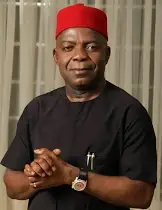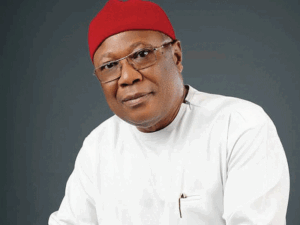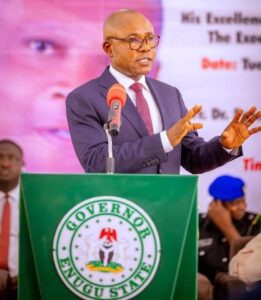Governor Alex Otti of Abia State has announced that his administration has repaid ₦72 billion of the ₦138 billion debt inherited from previous governments, while maintaining a strict no-borrowing policy. Speaking during his monthly media briefing in Umuahia, Otti cited figures from the Debt Management Office (DMO), which show the state’s debt reduced to ₦66 billion by December 2024. He clarified, however, that the DMO’s tally excluded substantial arrears such as unpaid salaries, pensions, and contractor debts, which the state factored into its own calculations. “Through prudence, strategic negotiations, and goodwill, we’ve cleared ₦72 billion without taking new loans,” Otti stated, reaffirming his government’s commitment to fiscal responsibility.
In healthcare, Otti highlighted progress on Project Ekwueme, a state-funded initiative renovating 200 primary health centers, with 103 facilities now 70% completed. A parallel World Bank-backed program is upgrading 67 additional centers. The governor also revealed plans to inaugurate Abia’s 1.3billion Medical City Project on May 29, a public−private partnership aimed at curbing Nigeria’s 2 billion annual medical tourism expenditure. “This facility will reclaim at least 10% of those funds while creating jobs and cutting-edge care,” he said, noting improved pay packages for health workers and the recruitment of 771 new personnel.
On infrastructure, Otti outlined major milestones which includes the near-completion of Aba’s Port Harcourt Road, a Julius Berger project set for inauguration on May 29, which Otti described as a catalyst for economic revival in the region.
The governor also addressed security, reiterating a zero-tolerance stance against crime, and outlined agricultural reforms to boost productivity. He urged media outlets to verify reports through official channels, cautioning against misinformation. “Every kobo of Abia’s resources is guarded,” Otti emphasized, framing his administration’s strides in debt management, healthcare, education, and infrastructure as part of a broader vision to reposition the state as a model of governance and economic resilience.




